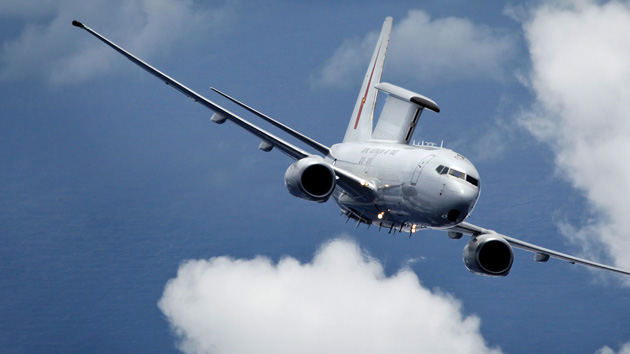Leeham News and Analysis
There's more to real news than a news release.
Pontifications: A fresh look at the world’s worst aviation accident
Nov. 19, 2018, © Leeham News: Collision on Tenerife is a new book that dissects the worst accident in aviation history, the collision between two Boeing 747s operated by Pan American World Airways and KLM Royal Dutch Airlines.
The accident on Tenerife Island on March 27, 1977, killed 583 passengers and crew on the two airplanes. Only 61 survived, all on the Pan Am flight.
It was the worst death toll of any aviation accident. Read more
How useful is an NMA, Part 6
By Bjorn Fehrm
Subscription Required
Introduction
November 14, 2018, © Leeham News.: Last week we operated the future Boeing NMA from North American hubs. The aircraft would cover the North American market well but would have limitations when flying to South America. The coverage would be sensitive to where our hub would be, as would European coverage.
Now we finish the series by comparing the NMA to its main alternatives for range and operational economics.
Summary:
- When comparing the NMA with its competitors, the same cabin type and ruleset must be used for all aircraft.
- Using a common ruleset and measuring over typical long range operation, the NMA will be the most economical aircraft of the compared types.
A330neo backlog faces challenging skyline
Subscription Required
Introduction
Nov. 12, 2018, © Leeham News: With the first flight of the Airbus A330-800, it’s time to take a new look at the status of the A330 program.
Summary
- Additional orders have been recorded, but the skyline remains challenged.
- Iran Air’s order for 30 ceos and neos is still on the books.
- AirAsia X has yet to confirm Farnborough’s MOU for 34 A330-900s and reportedly looks for convert some to single-aisles.
- Lessors have a big chunk.
How useful is an NMA, Part 5
By Bjorn Fehrm
Subscription Required
Introduction
November 8, 2018, © Leeham News.: Last week we flew a Boeing NMA from the Middle East. We found the aircraft would be well suited to serve this market.
Now we finish the coverage part of the series with checking how useful the NMA would be for North American based carriers.
Summary:
- The North American carriers will have a useful aircraft in the NMA. It will cover the domestic US and Canadian markets, including Alaska and Hawaii.
- The smaller 797-6 will cover wide parts of South America and Europe dependent on the hub. The larger NMA has more of a coverage problem outside the North and Central American markets. Read more
Boeing issues 737 Operations Manual Bulletin after Lion Air accident
By Bjorn Fehrm
November 7, 2018, © Leeham News.: Boeing issued a message to the operators of 737 MAX aircraft yesterday to remind their pilots of the procedures if an unreliable Angle Of Attack (AOA) information is suspected while flying.
Below we describe what these procedures are and why Boeing is reminding its customers about what to do when suspecting a false AOA reading.
Airbus A330-800 first flight
By Bjorn Fehrm
November 6, 2018, © Leeham News in Toulouse. The Airbus A330-800, the smaller of the A330neo variants, took off for its first flight in Toulouse today. It’s the fourth member of the A330neo flight test campaign and it will add another 350 Flight Hours to the 1,400 hours flown with the A330-900.
Airbus used the occasion to make a review of the A330neo program.
Accounting Standards Call Out Airplane Orders with Questionable Credit
By Dan Catchpole
Danieljcatchpole[at]gmail[dot]com
Nov. 6, 2018, © Leeham News: Like countless other businesses, Boeing this year adopted new accounting standards, known by the acronym ASC 606. The new rules did not significantly affect the company’s balance sheet. However, it did result in some noticeable changes to its orders and deliveries page.
Boeing added a line—dubbed ASC 606 Adjustment—to its total order table. It also moved some orders around within the order book, shifting them from the operators to Boeing Capital Corp., the aerospace giant’s financing arm.
737-based Wedgetail to be assembled in UK, Defence official says
Update, Nov. 6: Boeing said the Wedgetail will be assembled in Renton, as it has in the past. Discussions are underway with the UK to perform final modifications there (similar to how KC-46A tankers move from final assembly to the Everett Modification Center for installation of military equipment). However, no agreement has been reached yet.
Subscription required
Introduction
Nov. 5, 2018, © Leeham News: A UK defense publication reported late today (US time) that Boeing agreed to final assembly of the 737-based Wedgetail radar and surveillance airplane in the UK.
This marks the first time a 7-Series commercial-based airplane will be assembled outside the US.

Boeing 737-based Wedgetail. Boeing photo.
The 737 finishing center in China, which opens this year, installs interiors and paints the airplane of finished 737s.
If the report is confirmed by Boeing, this marks a huge strategic and psychological step in how Boeing Commercial Airplanes approaches final assembly in the future.
Summary
- Boeing has considered locating 737 line overseas in the past, but always rejected it.
- Union knowledge, reaction, unknown at this writing.
- Major implications for Boeing NMA (797).
WOW-Icelandair combo may help Airbus, hurt Boeing in A321LR/XLR-NMA campaigns
Nov. 5, 2018, © Leeham News: The announcement that Icelandair will acquire competing low cost airline WOW Air seemed the inevitable conclusion to the financially-strapped WOW, which aggressively expanded against the entrenched incumbent.
The combined carriers may help Airbus and hurt Boeing in current campaigns to sell the A321LR/XLR and NMA to Icelandair.
The combined carriers will serve 63 cities from their home base in Iceland. Icelandair serves 46 cities. WOW serves 40 and recently announced expansion to its 41st, Vancouver.
There will be 19 common cities and routes (see Chart). Read more





